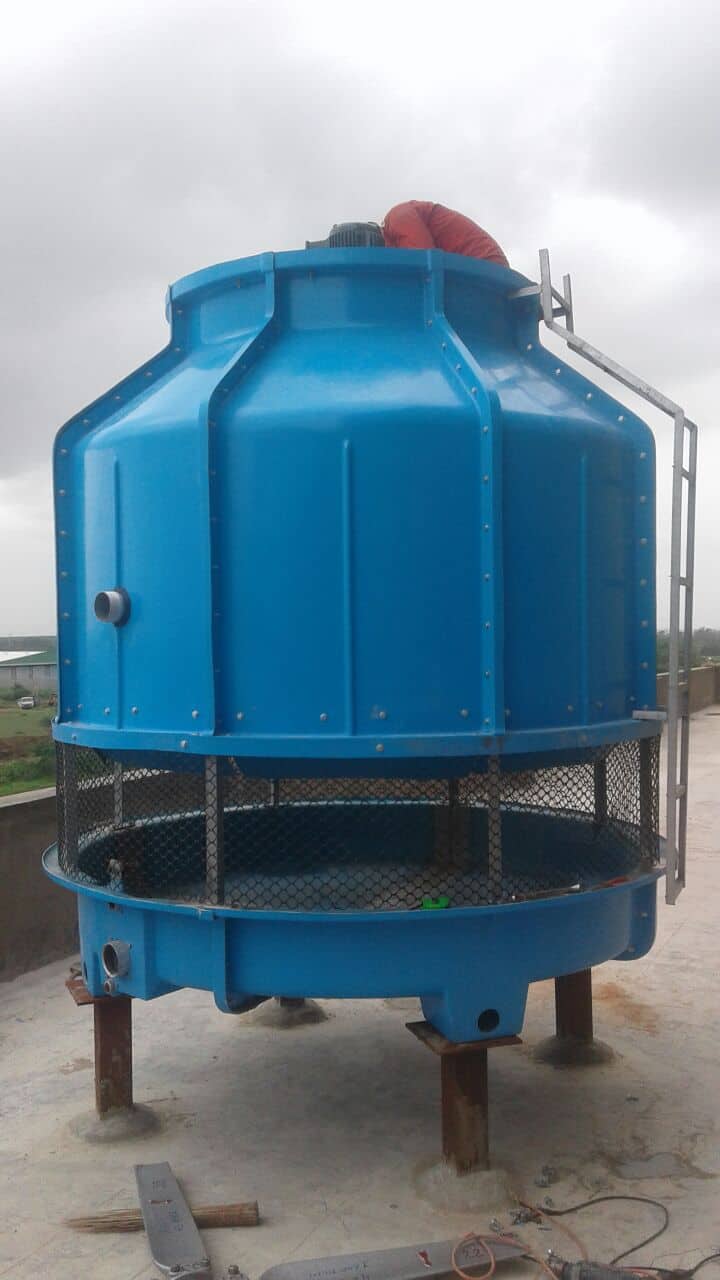
Cooling towers are medium which transfers thermal energy from one source to another. The heat transfer occurs by the exchange between air and water through the evaporation of a small part of the water that needs to be cooled. As big industries generate a large amount of heat, which should be disposed of for efficient operation, cooling towers are utilized for it.
There are a variety of cooling applications that uses water as a medium to absorb heat. Not only that but there are many different ways to set up an industrial cooling system. These cooling towers are divided into different ways based upon their shape, fan type, water flow efficiency, and other categories.
Here, are five different types of cooling tower application summarized by examining how cooling water is used in each system.
1. Field Erected Cooling Tower

The main course of a cooling tower is to lower the temperature of the water. You can design a cooling tower with pultruded fiberglass to get the stunning solution even in the poorest industrial ambiance. At Tower Tech India, get the towers modeled using stainless steel and other quality hardware too. The Pultruded fiberglass is the best fit for the renovation of old cooling towers and new projects.
The field-erected cooling tower consists of fiberglass which has its advantages while comparing to other traditional materials used in it.
2. Rectangular Cooling Tower

Tower Tech has different capacities and shapes available in the rectangular cooling tower. Despite the different shapes and sizes, the method works the same in every tower. The warm water enters into cooling towers by the pipes and leaves out after lowering the temperature. And the hot water is splashed through the non-clogging splash caps over the gaps. Outside dry air is induced in the cooling tower with pressure through the motor placed on the top of the system. Thus, with the contact of air and water, the evaporation will result in temperature drop and inflow of fresh air travels through the system.
3. Cross Flow Cooling Tower
In the cross-flow cooling water, the inflow of the air is in a horizontal fashion and the water flows in a vertical fashion. The system of this cooling tower works in splash fillings. The centers are eligible and flexible for the applications where the water gets hold of higher impurities that should be removed.
The water flows from the top of the tower through hot water gravity and into the fill while the cooling tower fan draws air across the fill. In such a way, the cross flow cooling tower allows the freshwater to enter.
4.Bottle Cooling Tower
 The bottle cooling tower is also known as the round cooling tower is famous for its stunning design and technology. As the shape of the tower is round in form, the airflow is evenly distributed from everywhere.
The bottle cooling tower is also known as the round cooling tower is famous for its stunning design and technology. As the shape of the tower is round in form, the airflow is evenly distributed from everywhere.
The system flows hot water to the bottom of the tower, through the mechanical rotary sprinkler located above the fill media. And the water pressure revolves around the sprinklers featuring arm pipes with orifices to disperse water uniformly over the fill media. Evaporated water eliminates the heat from the remaining water and the warm moist air will be discharged in the air.
One of the best features of the round cooling tower is its compact design with varying flute sizes and all the while offering maximum heat transfer to the surface.
5. Fan Less Cooling Tower
As the title says, Fan Less cooling tower application does not contain any fan or fill to cool water. Wooden louvers are used as a sidewall to restrict the water spillage. The wind enters through the passage in the cooling tower and acts as a cooling media. While the hot water is sprinkled with spray nozzles on the top of cooling water.
However, the best part of this cooling is the maintenance cost is very less. It is the most desirable cooling tower when compared to other types of towers. There will be no noise pollution when the system is working and it will definitely meet all your industrial requirements.
As you can observe that there are many types of towers to satisfy the requirements of different industries. It is best if you involve your cooling system in your planning to help you choose the most suitable system to fit your needs.




